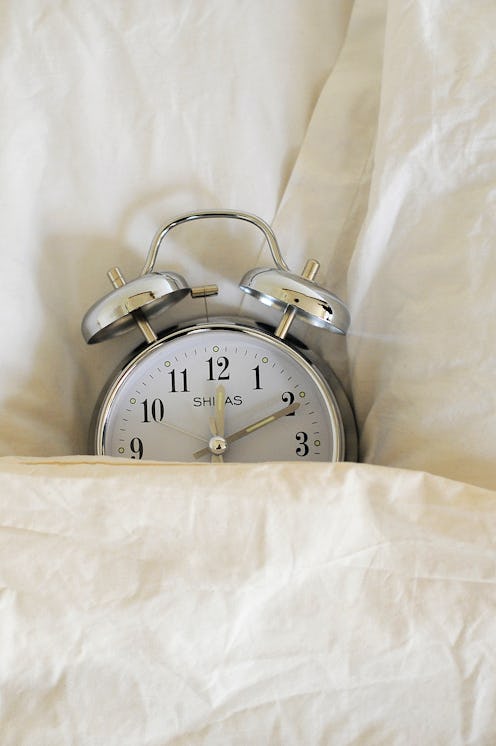News
Daylight Saving & Halloween Are Eerily Connected
The end of daylight saving time is nearly upon us! Remember the time before we had cell phones, when we'd have to manually reset all of the clocks in the house? Those were the days. Personally, I can never keep straight which time of the year we gain an hour and which time we lose an hour. So to clear things up right upfront: When daylight saving ends on Sunday, we will be gaining an hour in which to sleep and eat pizza and watch Netflix while we're recovering from Halloween. Score! It almost seems that it was meant to be; that we should have this extra time to convalesce after dressing up and debauching ourselves on Halloween. The weird truth is that there really is a connection between when U.S. daylight saving time ends and Halloween.
Statistical reports have shown that children are killed at much higher rates on Halloween night than any other day of the year in the U.S. According to a 2007 City Room article in The New York Times, legislators in Washington were very concerned about the amount of daylight time available for trick-or-treating children on Halloween night, and thought that moving the end of daylight saving to just after the holiday could help reduce the number of deaths, as they would not be trick-or-treating in the pitch black of night. The Halloween Safety Act was even put forth to Congress, which sought to guarantee that kiddos would have extra daylight on Halloween. And who do we suppose was behind that piece of legislation?
And as it turns out, the candy lobby (how can we get jobs there, am I right?) made a big push for this legislation to pass. The Times cited a book called Spring Forward: The Annual Madness of Daylight Saving Time, in which author Michael Downing argued that the candy lobby felt that Halloween candy sales would be boosted if trick-or-treating fell before daylight saving time. The candy industry denies this. Eventually, legislation passed in 1986 which extended daylight saving time by a whole month.
Halloween does in fact always fall during daylight saving time in the U.S. these days due to legislation passed by President George W. Bush in 2005. This act was related to energy savings, and was called the Energy Policy Act, which changed the end date for daylight saving to the first Sunday in November. This change has been in effect since 2007. (As an aside, it's been proven that the idea that daylight saving time conserves energy is a total myth.)
In a 2007 interview about his book about daylight saving, Downing told NPR that the reason the U.S. still uses daylight saving at all is due to commerce and the financial benefits for retailers (including the candy industry). Downing stated that "retail stores love daylight saving" because it means more daylight hours for people to go out and shop. Downing went on to say that "the first and most persistent lobby for Daylight Saving in this country was the Chamber of Commerce, because they understood that if their department stores were lit up, people would be tempted by them."
So here we have it, folks. Let all of our illusions about Halloween, Washington, D.C., and daylight saving time be shattered once and for all. Perhaps if extra daylight didn't benefit retailers, we wouldn't be setting our clocks back this Sunday at all. Though, given that we get to sleep an extra hour guilt free this way, I suppose I can deal with it.
